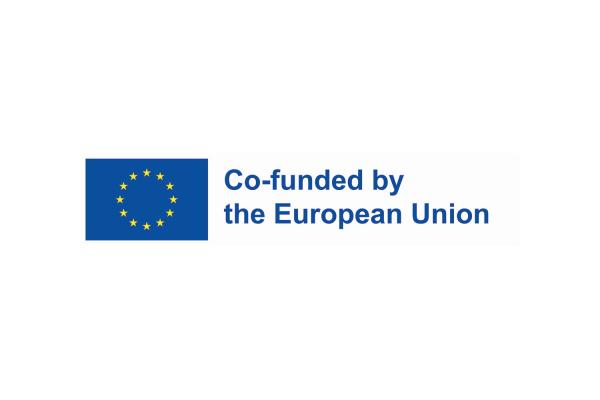

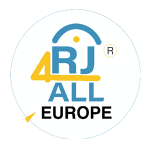
"RRiS”Restoring Respect in Sports
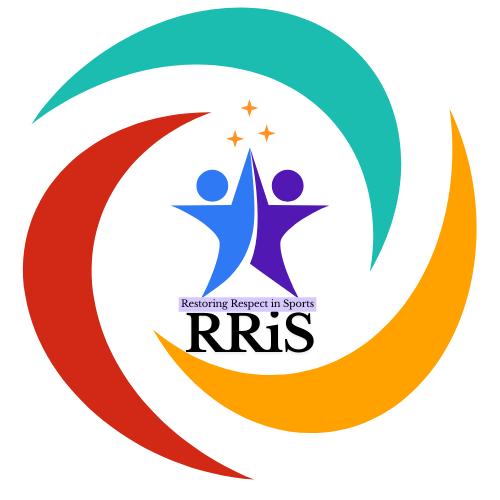
Project Code 101185144
Project Duration 01/01/2025 – 31/03/2026
Project Coordinator Social Cooperative Activities for Vulnerable Groups (EDRA)
Website:
About the project
The Restoring Respect in Sports (RRiS) project is a timely initiative aimed at addressing the rise of hate incidents and violence, including racism, misogyny, xenophobia, and intolerance, within European sports. Each year, new reports of these harmful behaviours emerge, underscoring the urgent need for action to protect the core values of fairness, equality, and inclusion within the sporting community.
Supported by a strategic partnership of leading NGOs from Greece, Bulgaria, Cyprus, and Türkiye, RRiS is dedicated to addressing and preventing the rise of hate-driven incidents in sports through restorative justice practices. With a focus on research-driven and evidence-based interventions, the project is aligned with key EU policies on anti-discrimination and draws upon existing legal frameworks to create a lasting and sustainable impact. RRiS is designed to create change at regional, national, and European levels, ensuring that its outcomes benefit both the sports sector and the broader European community.
At the core of RRiS is the application of restorative justice—a transformative, non-punitive approach that focuses on repairing harm, promoting dialogue, and fostering mutual understanding. While restorative justice has long been used in criminal justice and educational settings, its potential in sports remains largely untapped. RRiS seeks to bridge this gap by equipping sports professionals with innovative tools, practical knowledge, and effective strategies to proactively address and prevent hate incidents effectively, creating safer and more inclusive environments for all participants.
By focusing on specialised training, capacity-building, and cross-sector collaboration, RRiS aims to foster a more respectful and tolerant sporting culture to uphold the principles of equality, human dignity and respect. The project also supports the implementation of the EU’s 2012 Victims’ Directive, which highlights the role of restorative practices in addressing hate incidents, ensuring that every participant’s right to equality and respect is upheld.
Our approach
We have evidence to believe that sports serve as a powerful vehicle for positive change. At RJ4All, we insist that in order to address disadvantage and rebalance power in society in a more equal way, we must adopt a holistic approach. By leveraging the universal language of sports, we bring communities together, address marginalisation and cohesion issues, and enhance overall well-being and health outcomes. That’s why we proudly present “RJ4All Sports” – our dedicated brand aimed at harnessing the potential of sports for social impact.
Objectives
The RRiS project is designed to meet several key objectives that align with both societal and legal frameworks in Europe. These include:
1. Addressing the Rise in Hate Incidents: The project aims to identify, document and tackle hate incidents and violence in all its forms within the sports sector, particularly racism, misogyny, xenophobia, and gender inequality. By analysing current manifestations of hate faced by marginalised groups in sports, RRiS will develop a user-led, evidence-based educational programme on preventing and addressing such incidents of hate and intolerance.
2. Promoting Restorative Justice in Sports: A key component of the RRiS educational programme will be its use of restorative justice principles in line with the EU’s Victim’s Directive. This comprehensive educational and training programme will be catered to sports professionals, including coaches, players, referees, and other, and guide them on how to effectively integrate restorative justice to prevent, address, and resolve hate-driven incidents in sports.
3. Building Strategic Partnerships: The project will bring together a diverse network of stakeholders from various sectors, including sports organisations, anti-discrimination NGOs, human rights groups, law enforcement, and grassroots community leaders. These partnerships will foster collaboration and ensure a comprehensive and coordinated approach to tackling hate incidents in sports.
4. Raising Awareness and Building Capacity: RRiS will increase awareness of the role sports can play in promoting inclusion, diversity, and equality. It will also enhance the skills and capacity of professionals to handle hate-related incidents effectively, using restorative justice best practices to resolve conflicts and promote social cohesion.
5. Creating a Lasting Impact: RRiS will develop accessible digital training tools, including an online platform and e-book, to ensure the long-term sustainability and impact of its efforts. The project’s outputs will be widely disseminated across Europe and beyond, influencing policy and best practices at national and international levels.

Project activities and Outcomes
To achieve its objectives, RRiS will implement a series of targeted activities across Greece, Bulgaria, Cyprus, and Türkiye, including:
1. Research and Analysis:A key activity of the project is conducting research to understand the current manifestations of hate and intolerance in sports across partner countries as well as the role of restorative justice and dialogue in addressing these issues. The research will explore existing best practices for addressing hate incidents in sports by identifying and evaluating restorative justice approaches already implemented in partner countries, assessing their effectiveness and potential for broader application within the sports sector. This will involve user-led fieldwork, followed by the creation of national and comparative reports to lay the scientific groundwork for the project.
2. E-Book Publication: RRiS will publish the research findings, including the national reports and the comparative analyses, in an accessible e-book format. The e-book will be disseminated across institutions worldwide and leveraged for EU policymaking in the partnership countries.
3. Development of the Educational Programme: RRiS will develop a comprehensive educational programme, both in-person and online, aimed at preventing hate incidents in sports, focusing on racism, misogyny, xenophobia and other forms of intolerance. Based on restorative justice and the Victim’s Directive, it will target sports professionals and stakeholders, using evidence-based tools informed by the national research reports. It will be available in multiple languages and provide a CPD accreditation.
4. Campaigns and Awareness: RRiS will develop a communication strategy to raise awareness on hate incidents in sports and promote the project activities and ensure the widespread impact and sustainability of the project horizontally. This will include social media campaigns and the creation of visual materials to be disseminated at both national and EU levels to maximise its impact.
5. Networking and Stakeholder Engagement: RRiS will organise a national sport event in each partner country bringing together various sports actors to participate in friendly matches to promoting messages against hate and intolerance in sports. This will foster cooperation among consortium partners and key sports stakeholders, including sports clubs, NGOs, and policymakers, to work together towards restoring respect and preventing hate incidents in sports.
Through these activities, RRiS aims to create a lasting impact in the fight against hate-driven incidents in European sports, empowering sports professionals, and organisations to actively promote a culture of respect, equality, and inclusivity.
Funded by the European Union. Views and opinionsexpressed are however those of the author(s) only anddo not necessarily reflect those of the European Unionor the European Education and Culture Executive Agency(EACEA). Neither the European Union nor EACEA can beheld responsible for them.
Partners
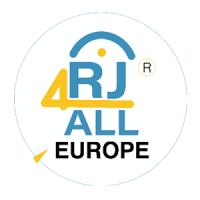
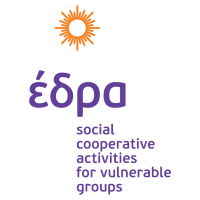





"ENHANCE”Empowering Girls and Young Women Across Europe and the Mena Region

ERASMUS-YOUTH-2024-CB Project 101186010 — ENHANCE
Project name: Enhance girls and young women inclusion with the full support of the community
Website: enhancerj4gbv.org
About the project
ENHANCE brings together a multi-agency, cross sector partnership of organisations from 3 EU (Cyprus, Italy, North Macedonia) and 3 NON-EU (Jordan, Morocco, Egypt) countries to increase their ability to tackle gender inequality and discrimination, by offering new up-to-date non formal education innovative methods and resources to ultimately foster a positive systemic change in their communities.
ENHANCE aims to tackle gender inequality and discrimination through:
-Building the capacity of NGOs and educators in EU and non-EUcountries
– Create supportive communities less prone to discriminationallowing the cross-fertilization of cultural norms, necessary toaddress barriers and stereotypes that lead to gender inequality and foster a more organised support to ensure girls and young women’sinclusion.
Our approach
Restorative justice can offer a framework for addressing gender-based violence by focusing on the redistribution of power lost by victims. Over time, some victim support groups have expressed skepticism regarding restorative justice in cases of gender-based violence due to existing power imbalances in intimate violent relationships. Critics argue that restorative justice could privatise gender-based violence, potentially revictimising women and exacerbating power imbalances (Pali and Madsen, 2011). Additionally, some view restorative justice as an “easy way forward” for offenders (Wager, 2013, p. 16; Marsh and Wager, 2015).
Objectives
The project has a focus on capacity building the partners from the non-EU countries drawing lessons and experiences from the EU based partners and the European Commission’s work on promoting gender equality.
By participating in this project, the partners will:
Enhance NON-EU organisations capacity to plan and implement localactivities to foster better local cooperation
Share updated, innovative non-formal education methods to facilitate girls and young women’s socio-economic empowerment Enlarge the number of NON-EU organisations, educators, target groups and communities using and benefitting from the project results
The project will also pilot its results among the consortium andtheir stakeholders and pursue a multiplier effect for the enhancement of youth work at a pan-European level.

Project activities and Outcomes
Transnational Project Meetings (Face-to-face contact between the partners is critical and thus we held 3 Transnational Project Meetings to take place in the participating in Cyprus, Italy, and Egypt)
- CAMPs – Training events (5 days face-to-face training events with themanagers and team leaders of the partners)
- Replicated CAMPs in Non-EU countries – Training events
- CAMPs reports
Funded by the European Union. Views and opinionsexpressed are however those of the author(s) only anddo not necessarily reflect those of the European Unionor the European Education and Culture Executive Agency(EACEA). Neither the European Union nor EACEA can beheld responsible for them.
Partners










"Gentle Speech”Preventing and addressing divisive narratives through restorative justice

Project code: B54H24001310009
Project Duration: 1 – 31/10/2024
Call: Art. 8 L.R. 12/2005 AVVISO PUBBLICO 2024 per la concessione di contributi a sostegno di “INIZIATIVE PER LA PACE E PER LO SVILUPPO DELLE RELAZIONI TRA I POPOLI DEL MEDITERRANEO”
Funding Authority: Regione Puglia – Dipartimento Sviluppo economico sezione ricerca e relazioni internazionali
Coordinator: Sinergia s.c.s
The Need
There is evidence to suggest that divisive narratives in Cyprus and across Europe are increasing (Gavrielides, 2021).These are often fed by nationalism and the fear of the other. Certain groups in modern society, as these are represented by small and large political parties, believe that the concept of nation and citizenship should be limited to one ethnic or identity group, including one culture or religion (Fekete, 2018). Often, what is perceived to be inconsistencies between the defined social order and the experience of that social order by its members results in a situation of anomie that nationalists seek to resolve (Motyl, 2001). They do so by engaging in acts, policies, and structural reforms that aim to remove whatever elements are deemed unacceptable. Some of these acts may even be the result of hate or fear towards certain groups deemed as different from the perceived ‘national community’. In this journey, universal values expressed in human rights and some international agreements are seen as a hindrance to national sovereignty and a destruction from pursuing national interests.
These divisive narratives often lead to hate-motivated crime and speech. Cyprus has suffered considerably from these phenomena which are all illegal under Cypriot and EU Law. The 2008 Framework Decision on combating certain forms of expressions of racism and xenophobia requires the criminalisation of public incitement to violence or hatred based on race, colour, religion, descent or national or ethnic origin. On 9 December 2021, the European Commission adopted a Communication which prompted a Council decision to extend the current list of ‘EU crimes’ in Article 83(1) TFEU to hate crimes and hate speech. If this Council decision is adopted, the European Commission would be able, in a second step, to propose secondary legislation allowing the EU to criminalise other forms of hate speech and hate crime, in addition to racist or xenophobic motives.
Along with many recommendations, guides and toolkits, on May 7, 2024, the Council of Europe adopted the “Recommendation CM/Rec(2024)4 of the Committee of Ministers to member States on combating hate crime.” It advises member states to take comprehensive measures to prevent and combat hate crime, ensure effective criminal law provisions, support victims with specialized services, and promote a culture of inclusiveness and respect. It emphasizes training for police, the role of specialized hate crime investigators and prosecutors, and the importance of third-party reporting and data collection.
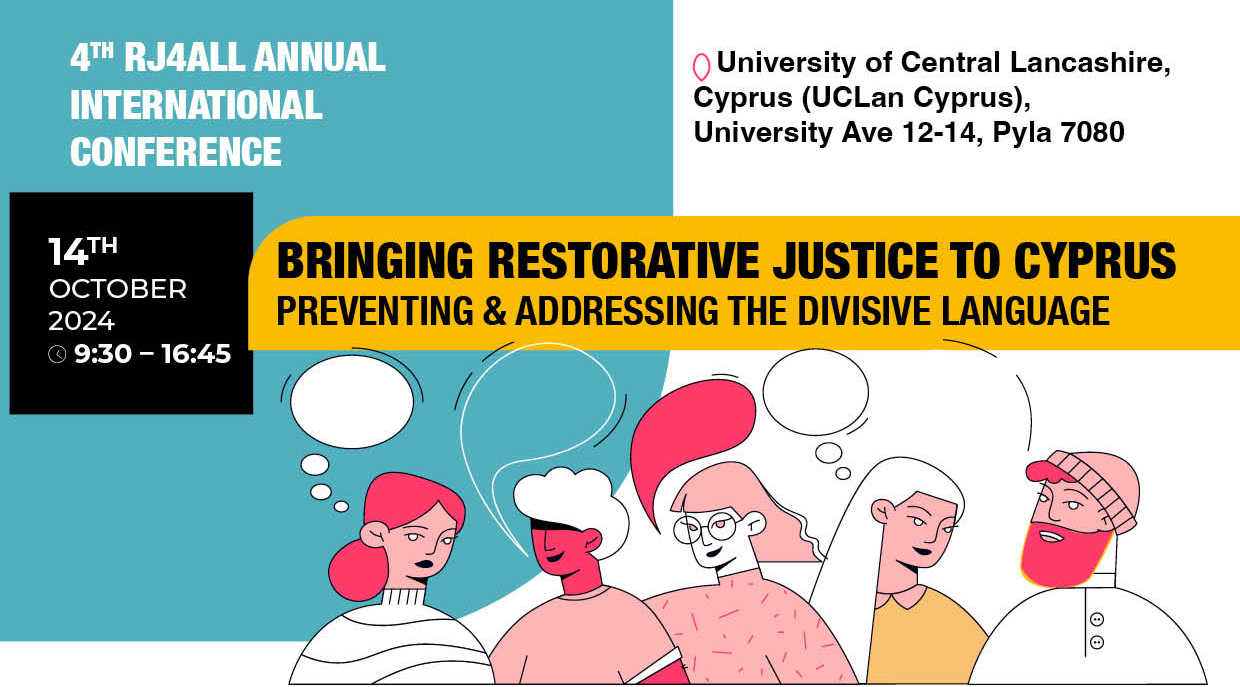
4th RJ4All Annual International Conference
Bringing restorative justice to Cyprus Preventing & addressing the divisive language
Our approach to the need
At RJ4All Europe, we believe that the law alone cannot address such complex societal phenomena. This requires an inter-disciplinary approach bringing together psychology, social and applied sciences. The law can be supported through non-violent methods of communication and practice. These are encapsulated in the ethos and practices of restorative justice (Gavrielides, 2007). We also have evidence to show that when it comes to hate related harms and speech, restorative justice can make a considerable contribution (Gavrielides, 2012).
Read more on RJ4All’s approach to hate crime and hate speech.
The project
“Misunderstanding arising from ignorance breeds fear, and fear remains the greatest enemy of peace.”
– Lester B. Pearson
In partnership with the Italian NGO Sinergia s.c.s we are conducting this project to raise awareness and increase usage of restorative justice as a means for preventing and addressing divisive narrative and especially hate related incidents and speech. The project aims to increase skills and knowledge around restorative justice methods of non-violent communication such as peace circles. The ultimate objective is to support initiatives for peace and the development of relations that encourage exchange and dialogue with the populations of the Mediterranean Basin, with a particular focus on preventing misinformation, digital illiteracy and online hate speech.
The project also aims to prevent and fight racial hatred through activities aimed at promoting digital media literacy and citizenship skills, and foster intercultural dialogue especially amongst the Greek Cypriot and Turkish Cypriot communities. This includes restorative dialogue and non-violent communication activities, with the aim of educating and raising awareness among people, providing them with the necessary skills to counter hatred and promote a more inclusive and respectful environment.
The project activities are aimed at a diverse target group, including adults and students aged 13 to 25, who may be negatively influenced by online hate and misinformation. Each group of direct beneficiaries will include a minimum of 50 participants per country, who will actively take part in workshops and awareness events. Additionally, indirect beneficiaries will also be involved through online and/or in-person actions, thereby amplifying the impact of the initiatives beyond the direct participants

Project activities
The project is carried out in Cyprus and Italy.
Activities taking place in Cyprus
- Collaboration and cross border exchanges and leading between Cyprus and Italy via the partner organisations
- Wider partnership development at the local and international level
- Capacity building material development
- International conference (14th October 2024) in partnership with the University of Central Lancashire, Cyprus (UCLan Cyprus)
- 2 Workshops of non-formal training activities on digital media literacy and misinformation will be conducted for young and adult citizens.
- 2 Workshops of non-formal training activities on non-violent communication will be conducted for young and adult citizens.
- 2 Peace making restorative justice circles based on our CPD certified ecourse “Induction to restorative justice circles”
- 1 exhibition of digital works on “Gentle Speech” produced during the workshops
- Video production and social media and media engagement.
Activities taking place in Italy
The programme and cooperation will culminate in Italy, where Sinergia s.c.s., the project coordinator, will organise and host a major international conference titled “Non-Violent Communication” in Puglia. This event will feature experts in hate speech and restorative dialogue, with RJ4All Europe represented at the conference.
The project is financially supported by Regione Puglia – Dipartimento Sviluppo economico sezione ricerca e relazioni internazionali (Puglia Region – Economic Development Department and International Relations).
The collaboration between RJ4All Europe and Sinergia not only brings together young and adult citizens to help prevent and address divisive narratives, but also provides a unique opportunity to explore and promote non-violent methods of communication across borders.
By exchanging best practices and methods, this initiative will foster a deeper understanding and connection between the two Mediterranean countries, enhancing the impact of our efforts on a broader scale.
Local partnerships
The project and its workshops are delivered in partnership with the
We are thrilled to announce another significant achievement in our ongoing efforts to combat violent extremism and radicalisation: the inclusion of the RDaVR (Restorative Dialogue Against Violent Radicalisation) Project on the Radicalisation Awareness Network (RAN) platform. RJ4All continues to lead the change in addressing these critical issues through our dedicated initiatives, which span capacity-building, research,…
We are excited to share a significant milestone achieved by RJ4All in our ongoing efforts to combat violent extremism and radicalisation. With years of dedicated work and extensive experience, RJ4All has been at the forefront of addressing these critical issues through our multi-year capacity-building, research, awareness-raising, and educational programmes. Our initiatives aim to: Explore the…

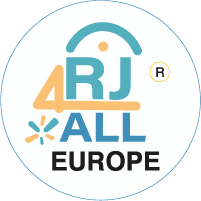
Project Name: Restorative Justice for Restorative Communities
KA153-YOU – Mobility of youth workers
About the project
The aim of the Restorative Justice for Restorative Communities (RJRC) project is to increase knowledge and enhance the use of best practices in the field of restorative justice and to make them more homogeneous at European level, as well as strengthen the skills and awareness of civil society actors contributing to its implementation in several Member States. The consortium has recognised that restorative justice has the potential to serve as a tool for not just improving individual-focused restorative practices, but also for fostering the growth of more resilient communities.
The RJRC aims to address the need to better frame the restorative justice activities, increasing knowledge and the solidity of skills to be acquired. Along with this, the project will seek to become the driving force for a pioneering cooperation process on European organizations that will create partnerships for future projects dealing with the more practical side of restorative practices.

Background
Restorative justice has gradually made its way into the European debate. On one side this paradigm shift is driven by the urgency to rethink the concept of punishment from a less punitive and more repairing perspective in order to recreate the bond that the crime or injustice has broken; on the other side, restorative justice became a much-needed avenue because the penalty, in the strict sense, proved to be insufficient and sometimes a counterproductive tool to combat some crimes or problems that arise today.
The United Nations Organization has been promoting restorative justice as a central part of the penal system; the handbook on restorative justice programs (now in its second edition in 2020) constitutes a key formal element, as well as a general indicator of effort, in promoting this practice. In Europe there have been numerous initiatives that put forward the discussion of restorative justice in Member States. The Directive 2012/29/EU became the first ever legally binding document concerning restorative justice and its implementation in the EU Member States, while in 2020 the EU released its “Strategy for the rights of victims 2020-2025”, highlighting the benefits of restorative justice and the role it can play in empowering victims. In this perspective, the European Forum for Restorative Justice (EFRJ) and its immense role in promoting restorative justice cannot go unnoticed. Today it is one of the most influential non-governmental entities at the continental level on the theme of justice, and constantly dialogues with the European institutions, the national judicial systems and the academia.
Many European countries, within their own borders, have made interesting steps forward, however the situation is still patchy. Along the way, it became evident that the approach to restorative justice, can be understood as a process not only judicial, but also civil and social. This means that the application of these same practices is closely connected to the work of organizations of civil society. For this reason, their function and contribution are essential so as to prevent the principles of restorative justice remain only on paper, but make Europe pioneer in bringing life to restorative justice.
Objectives
The main objectives of the project are as follows:
- investigate the state of the art in restorative justice, mapping the good (or innovative) European practices developed by individual member states, and determining a mode of exchange;
- raise awareness and promote all the actors involved on the issue of restorative justice;
- support already active civil society organizations, through knowledge-exchange in order to increase the quality of the services offered, as well as increase the skills of its operators on the subject, in line with the national and European standards.
Project Planned Mobilities
- Preparatory visit with 8 managers and directors of the partner organisations in Italy.
- Professional Development Activities with 14 social workers/restorative justice operators in Italy on 15-19 January 2024
Project Activities and Outcomes
- Online meeting on 04/07/2023
- Online meeting on 19/09/2023
- Preparatory visit at Cascina Castellazzo in Milan, Italy. Read our blog about this mobility: Restorative Justice for Restorative Communities: a Preparatory Visit to “Cascina Castellazzo”
- Online meeting on 19/12/2023
- 5-day Professional Development Activity (PDA) in Milan, Italy. Read our blog about this mobility: A Comprehensive Exploration of Restorative Communities in Milan
Further Recourses
Our Founder & Director, Dr. Theo Gavrielides, has written extensively on the topic of Victims Rights Directive.
Gavrielides, T. (2015). “The Victims’ Directive and What Victims Want from Restorative Justice”, Victims and Offenders Journal, Vol: 10. Issue 2. pages 1-22. DOI 10.1080/15564886.2014.982778
Gavrielides, T. (2016). “Repositioning Restorative Justice in Europe: The Victims’ Directive”, Victims & Offenders Vol. 11, Iss. 1, pp. 71-86
Gavrielides, T. (2019) Safeguarding and Empowering Crime Victims: Training manual: Restorative justice and the Victims’ Directive, London: RJ4All Publications. ISBN: 978-1-911634-09-6. DOI: 10.13140/RG.2.2.10019.12327
Gavrielides, T. (2017). “Collapsing the labels “victim” and “offender” in the Victims’ Directive & the paradox of Restorative Justice”. International Journal of Restorative Justice, Volume 5, Special Issue 3: Reimagining victims and restorative justice: the European Union, Canada and beyond, p. 368-381
Gavrielides, T. (2014), A victim-led criminal justice system for Europe: Addressing the paradox, IARS Publications: London. ISBN 978-1-907641-27-5.
Our Partners
Funded by the European Union. Views and opinions expressed are however those of the author(s) only and do not necessarily reflect those of the European Union or the European Education and Culture Executive Agency (EACEA). Neither the European Union nor EACEA can be held responsible for them.











